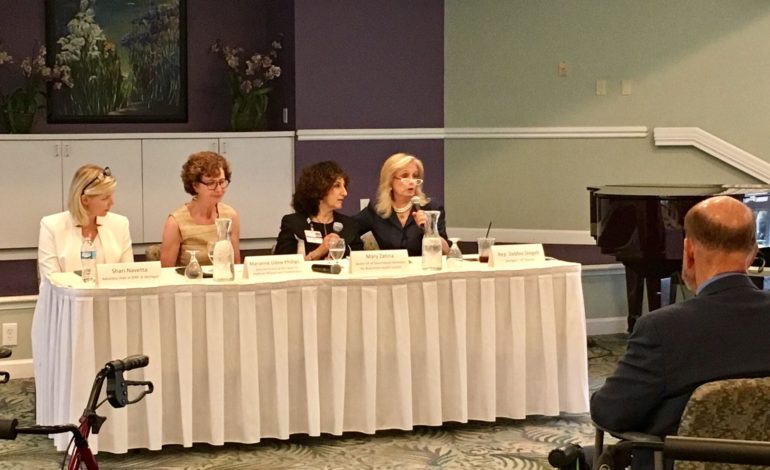DEARBORN – Local healthcare experts and U.S. Rep. Debbie Dingell (D-Dearborn) held a town hall Monday on the state of healthcare and pre-existing conditions coverage and what it means for people in Michigan. Dingell joined Marianne Udow-Phillips, executive director of the Center for Healthcare Research & Transformation at the University of Michigan, Mary Zatina, senior vice president of government relations at Beaumont Health and Shari Navetta, advocacy chair at the Juvenile Diabetes Research Foundation of Southeast Michigan.
“Whether I’m at a town hall or the grocery store, in Ann Arbor or Downriver, I hear from people who are scared to death about the potential loss of pre-existing conditions coverage,” Dingell said. “We cannot go back to days that people with diabetes, high blood pressure or heart issues have to fear being denied insurance or premiums so high they cannot afford them. There’s so much happening, but it’s important we keep talking about changes happening in healthcare and what it means for families in Michigan. When you live in America, you have a right to affordable, quality healthcare. Congress must work to improve – not dismantle – the Affordable Care Act.”
“At Beaumont, we believe that the most important aspect of delivering care is ensuring our patients have full and robust access to care and health insurance,” Zatina said. “The ACA helps us help people. It’s the doorway to better care, better value and healthier lives and it offers protections for pre-existing conditions and protections for children. The ACA is not perfect, but it has provided access to care where there was none before, and we should build off these gains rather than moving backwards.”
“Recent changes to the Affordable Care Act have been destabilizing to the individual market in many ways,” Udow-Phillips said.
She cited premiums in Michigan increased an average of 26.7 percent in 2018 as due to federal regulatory changes and uncertainty about the future of the ACA.
“While premium increases in 2019 look to be much lower, future increases are likely as a result of things like the repeal of the tax penalty for people who don’t have health insurance,” she said, “which is a problem because it means that people have less incentive to buy health insurance and those insured are more likely to be sicker, which makes costs go up actually for everyone.”
“It is imperative that people with Type 1 Diabetes have access to affordable, quality and predictable healthcare coverage,” Navetta said. “Keeping themselves healthy and in range every day is stressful enough without the added burden of wondering if they will be able to afford the supplies and insulin they need to live.”






Leave a Reply